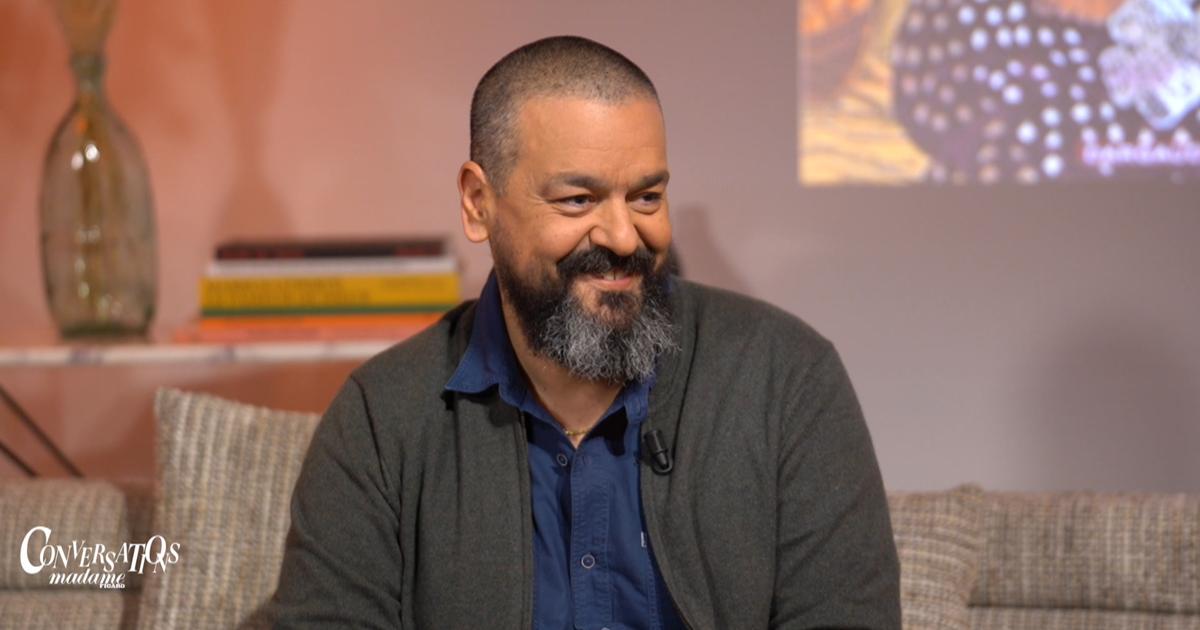"We have wars, missiles, terrorist attacks, fights here all day in politics, and we have become addicted to it, to the unconventional life. The data shows that we have become addicted to the thrill," says Prof. Tal Shavit.
"Action is part of our story - the addiction to adrenaline. And that explains how despite all the difficulties we are still very happy."
Prof. Tal Shavit, an expert in behavioral economics and the economics of happiness, instructor of courses and seminars at Ariel University, has an answer to a question we all grapple with.
Want to be happy?
The recipe: consume less - less news, less social networks and less of the Choponi culture, live according to values - and here you are, on your way to happiness.
easy?
not exactly.
In the global happiness index published by the United Nations in March, Israel rose to ninth place. In first place, as usual, is Finland - the homeland of happiness, and above us are the Scandinavian countries (Denmark 2, Sweden 7, Norway 8). So it turns out that we, as a public, are a happy nation. You are a comet The data did not surprise.
"In the last year, we moved up to the top ten, for the first time, out of 150 countries. And it's interesting, because the corona virus has not affected happiness in the world at all, not even in Israel."
How can it be?
"Happiness didn't change, the feelings changed. There were positive feelings and negative feelings in Corona, but it's temporary. People were less at work and more at home, they had more leisure. People discovered that they had children at home, people discovered themselves.
"We see the shedding of these understandings in a wave of resignations. People resigned because they lost confidence in the workplace, were thrown into unemployment and began to rethink their careers and changes.
work-life balance becomes a very central issue.
Even before questions about salary, people ask in a job interview if it is possible to work from home, what is the flexibility in hours or how many vacations will they get.
In Portugal and France, laws were enacted designed to prevent overtime work, and this will come to Israel."
Do you recognize a trend in the job market?
"Certainly, the change starts from the bottom, with the young people. Generation Y and Generation Z are not ready to work after 5, and they will not sit in a high-tech company until the night. By 7, they will already be at the gym near their home. Entire industries are suffering from a lack of workers. Teachers , for example. There is no work-life balance in this field."
Because the workers don't want to be slaves.
"True. The word workers is an ugly word. I prefer 'employed'. Many people internalize who are tired of being slaves and are lowering their standard of living now. The corona virus has taught us that it is possible to cut back, and get mental well-being in return."
However, part-time work and a limited salary also create a problem - and especially financial anxiety.
"In studies, we have seen that people do not sleep at night because of stress from work, tasks and worry. As an employer, you do not want tired employees. Fatigue affects work productivity, so what have we done about it? It is a never-ending circle.
"In order to overcome the problem, a new position was introduced in the organizations, CHO - approved VP in the organizations.
His role is to characterize the employees according to age, gender, marital status, etc., and to manage the happiness of the employed, not only during working hours but throughout the day.
To encourage them to sleep healthy, to encourage a culture of leisure.
When a manager addresses an employee in the evening, or while he is on vacation, it is nothing less than insolence.
We have a very problematic management culture."
Are there indicators in the report that surprised you?
"Yes, there was an episode devoted to the question of an unconventional life, and many Israelis prefer not to live in the ordinary. We are always asked how Israelis are so happy, because let's agree that it is quite crazy to live here, so the data shows that we have become addicted to the thrill, to the unconventional life. For Israelis who leave for countries like Norway or Switzerland is difficult with boredom, because 'nothing happens here'. Action is part of the Israeli story."
Shavit is in "one of the best research fields in the world", according to him.
Israel is fertile ground for researching fear, happiness and life satisfaction.
In recent years, he has been investigating fears through quantitative field studies.
Let's talk about the gap between national happiness and personal happiness.
"Happiness is satisfaction with life in general. Emotions come and go. In the morning I am happy and in the afternoon I am sad, but this does not affect my satisfaction with my life, and the studies show stable satisfaction, and overall Israelis are satisfied with their lives, which is especially interesting against the background of the fact that we are a country that lives In the red. 50 percent of the population is in a permanent red, it's a culture of 'it will be fine' and a desire to live in the moment because Iranians are on fences. So many families chase after the red, we live in a crazy affluence culture. You can buy anything, and in Israel almost every child over the age of 8 has Phone. We are less thoughtful, and people don't worry about pensions."
Wealth is not everything
It was the Swedish band Abba that distilled the message "Money, money, money/ All the things I could do/ If I had some money/ This is a world of the rich."
The Swedes knew what was needed in life to achieve happiness - to be able to buy it, and Prof. Shavit does not deny it, but slightly qualifies.
"Money doesn't make us happy. We did a study on US lottery winners and we saw that.
We all have a dream to be rich, and we think that if we achieve it we will be the happiest in the world.
It doesn't work that way.
The basis of happiness is health, and money does not always buy health.
"There are rich people who died at a young age and the money didn't help them. People who get rich quickly and stop their daily activities - harm their own happiness. They lose the community, become suspicious, think they want their closeness because of the money, and suddenly there are conflicts in the family. Money is as good as a dream."
It seems to me that this is what Shi-Lee Schindler tried to prove in her film.
"Money is good for happiness because it gives a sense of stability. The question is what you do with the money, and how you continue your daily routine.
"Amassing assets - amassing anxiety. You shouldn't feel sorry for rich people, but the model that should be set is that if you get rich, dedicate the rest of your life to giving, that's how you'll be a happy person. This doesn't just mean donating money, because giving also means helping ventures, also speaking with students, accompany projects, etc. If a person has become rich and successful, it is his time to do for others."
And when you look from an economic point of view, the disparities in Israel are huge.
"This is one of the sick evils of economic growth in Israel - the lack of equality. We need to improve the status of women in Israel, because the change is not fast enough. I cannot understand the logic that a woman and a man in the same job will not earn in the same way. Studies show that women are more efficient at work, and successful There are many more areas in which men do not succeed, also in the capital market for example. They are much better managers than men. Only when they improve the status of women will it reduce economic inequality. For example, my sister is a social worker, who does sacred work for no money, and it is terrible. There is There is a terrible shortage of social workers, nurses and teachers, and it's all a matter of priorities."
Do economic disparities affect happiness?
"In our country economic equality is less relevant, it is measured by the differences in income. One of the poorest populations in Israel is the ultra-Orthodox, but they are the happiest. Their happiness is not related to money - they have meaning, faith, values, social cohesion. Secular society has a lot to learn from the ultra-Orthodox On mutual support, on modesty and giving, which are the foundations of happiness.
"Community is one of the five most important things for happiness. People in a strong community know that if they fall then the community will catch them and help them, they won't be left alone. Those who live in an alienated community don't feel that way, and it's not good for happiness."
And the Israelis love communalism.
"True. This is part of the secrets of our happiness. Our communalism is very strong. For example, Japan ranks low in the index even though it is a rich country, and this is because it is a very individualistic and competitive society, which affects the levels of happiness. African countries are at the bottom of the ranking, because of poverty and life expectancy the lowest, and Afghanistan, Syria and Lebanon close the list."
The surprising recipe for happiness
Shavit (48), a resident of Givatayim, was born and raised in Hadera.
His mother was a kindergarten teacher and his father worked for a road construction company.
He studied economics and management for a bachelor's degree at the Faculty of Industry and Management at the Technion, and did his master's degree at Ben-Gurion University.
"I spent my childhood without cell phones and without computers. We grew up in a neighborhood with football, a childhood of physical meetings and not conversations through screens. There were less good times financially.
"My children live in a world of abundance, they have a computer in every room, everything they need, and on the other hand, it's a shame for me that we've lost the simplicity, modesty, and contentment with the simple things of life, which seem worthless to us today. I think they have a lot of value."
He met Solly, his wife, an accountant, at Ben-Gurion University.
They are the parents of three - 16-year-old Dror, 14-year-old Yahal and 10-year-old Noya.
"We are the Israeli story to a certain extent. I am the third generation of the Holocaust, my father is an only son and my mother was born in the country. Her parents were pioneers who immigrated from Poland before the war, drained swamps in Hadera and Afula. My wife's father was born in Spain, in Tangier, and her mother was born in the country, but her parents are from Morocco, and the discussion The racism is puzzling to me.
"I research national happiness, and this is terribly bad for national happiness, it divides us. The main thing in national happiness is community, unity, the sense of togetherness that you feel on the days of remembrance and independence or when a tragic event happens. In the end, we are all here together. I don't think there is discrimination, but time will It's his and it will change, our children's generation won't think it's relevant. What is my son - Moroccan or Polish? We're all Israelis. Our children don't deal with it anymore, it's not relevant."
If I want to raise happy children, what should I do? give me a recipe please
"The studies in the field of happiness economics and happiness management looked at how one can be happy in their 30s and 40s, and found that values are the most important thing. The more you educate from a young age about the values of modesty, contentment with what you have and giving, the children will grow up to be happy. We found in studies that children who receive pocket money from an early age 6 Know how to delay gratification at an older age. Even children who have been involved in sports from a young age know how to deal with delaying gratification. That is why the education system needs to teach more skills. It will help if we teach them financial education, and especially the ability to delay gratification. People who do not know how to delay gratification do less sports, eat less Healthy, smoke and drink alcohol. This skill is decreasing among teenagers and children, and then the result is more alcohol, more drugs, more smoking, more violence and more financial expenses."
In order to turn Israel into an empire of happiness, Shavit proposes a "total revolution in the Ministry of Education."
He explains that "if we continue like this, woe to us where we will end up. There are countries where happiness is embedded in education. They teach how to live a happy life. The education system needs a 180 degree reform, to extend the days of learning from home. We must prepare the students for the new world, the way of studying must change , and it is sad that the status of spiritual and social studies is going down. We must produce human beings, teach history, citizenship, the Bible, and I would introduce philosophy and economics studies and increase citizenship.
People who don't get the values may know math perfectly, but it will be very bad.
I would also improve sports studies.
"At the individual level, we discovered that what makes people happy is the management of happiness: doing sports on a daily basis, strengthening community ties, investing in family and friends, volunteering, monitoring social networks and consuming news."
Happiness is important as a tool to reduce morbidity, increase work productivity and drive the economy. You would expect the government to be involved, wouldn't you?
"The issue of national happiness is of no interest to anyone. The United Arab Emirates has had a Minister of Happiness since 2016. There are countries in India that have happiness advisors to the government, and there is a Minister of Loneliness in England. In Israel there is no mention of national happiness in the platform of any party. If we want to deal with terrorism, It is clear that national resilience and cohesion will help us."
Second puberty
And to be happy, how many hours should be spent in leisure?
"I distinguish between passive and active leisure. Passive leisure is watching Netflix, and active leisure is sporting activities or meeting friends. Active leisure is good for happiness, while passive leisure can even harm it. As we manage wealth, so should we manage our leisure And of the children. Part of what happens to teenagers in the US - the consumption of pills and drugs and an increase in depression levels - is related to screens and the reduction of active leisure.
It is not wise to be in a race until at the end the body or mind collapses.
Sleep is also important for health."
Maybe we don't sleep because we are constantly online. Do they affect our happiness?
"If I'm online all day instead of doing other activities, it's not good for my happiness. The studies mainly talk about the influence of the networks on young people. The young man at home sees that everyone is hanging out, flying, having fun and taking pictures, and thinks how poor I am, stuck at home because my parents are like that, and my luck That's not the reality, the networks reflect a reality that doesn't exist. Nobody has a perfect life, and people like to present a perfect life on the networks. That's why sports activity is more important, and from a young age you have to educate and assimilate it.
"I'm not one of those who advocate 'if you think positive - everything will be positive'. It's good to be optimistic, but I'm third generation after the Holocaust, I always think of the worst case scenario," Shavit laughs.
"At the age of 45, my token fell and I went through a second puberty. I made a lot of changes in my life. It is known that the lowest level of happiness is at the age of 35-40 when there is financial pressure and small children, a mortgage and things that stress life, and when you reach old age, happiness climbs back."
Who is the happiest person you know today?
"My wife is the happiest person I know. I am anxious and not optimistic, but everything will always be fine with her and she is very happy. She looks at the good things and radiates joy and happiness. I know a lot of happy people who have no complaints, who are satisfied with the life they have created. It is very important to be around of people who are good for them and who are happy, because it reflects on you."
What helps you to be happier every day?
"Avoidance from watching the news raised my level of happiness."
were we wrong
We will fix it!
If you found an error in the article, we would appreciate it if you shared it with us















